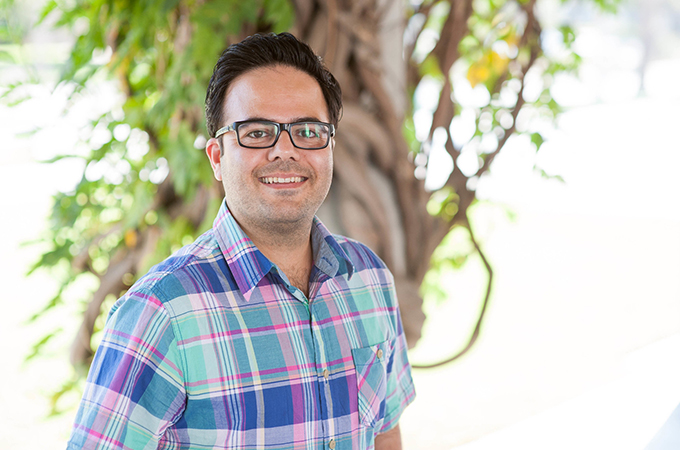In a recent study, University of Redlands Business Professor Mehrdad Koohikamali found results that emphasized the need for social media users to be vigilant about assessing the viability of information shared over different platforms. Published in the journal Informing Science, the study explored what influences the likelihood that people re-share information on Facebook.
“We decided to focus on three dimensions of information quality: enjoyment, relevance, and reliability,” Koohikamali says. “We found that enjoyment was the only factor that influenced people to re-share content. When people like the content that they see, they just share it, often without reading it.”
The research also revealed that people who are more likely to take risks in everyday life are also more likely to share information on social media.
Koohikamali decided to conduct the study after observing from his own social media use that people don’t seem to have authority or expertise on the subjects they post about.
The study builds on Koohikamali’s previous and ongoing research on social media and information systems, including a study on the effect of anonymity on the now-defunct social media platform Yik Yak and the relationship between location and social media behavior.
Koohikamali, who teaches a class in the U of R School of Business called Information and Knowledge Management, notes that social media is not all bad: for example, it can provide valuable and authentic feedback to businesses on their products and services.
Looking to the future, Koohikamali says that there should be a focus on educating people about social media and its various consequences. “If people are using social networks, they should be knowledgeable enough about the information they decide to share or it could have negative consequences on society,” he says. “There has never been any education around social media behaviors, so many people don’t know how to be careful.”
The recent study, which Koohikamali co-authored with Anna Sidorova of the University of North Texas, was called “Information Re-sharing on Social Network Sites in the Age of Fake News.”






